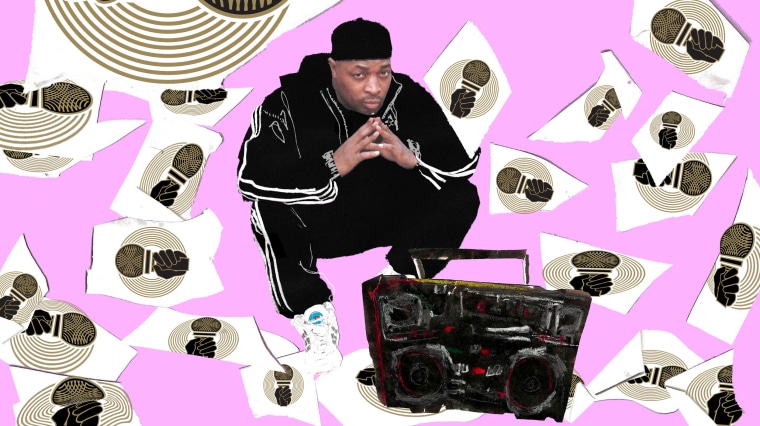When hip-hop emanated from the Bronx 50 years ago, initiating a genre of music that would influence Black culture in myriad ways, Chuck D was 13 and not at all interested in becoming one of the rap game’s most important voices.
“Who the hell wants to be a star?” was his mindset back then, he said.
But the pull and fascination of hip-hop grabbed a hold of him as it has countless artists and fans alike, and he put aside his ambition of being a journalist. In 1985, he helped form and lead Public Enemy, the iconic rap group that released 15 studio albums, two live ones and many more compilations and other records, almost every one of them anchored in Black empowerment messages on civil rights, social justice and historical references.
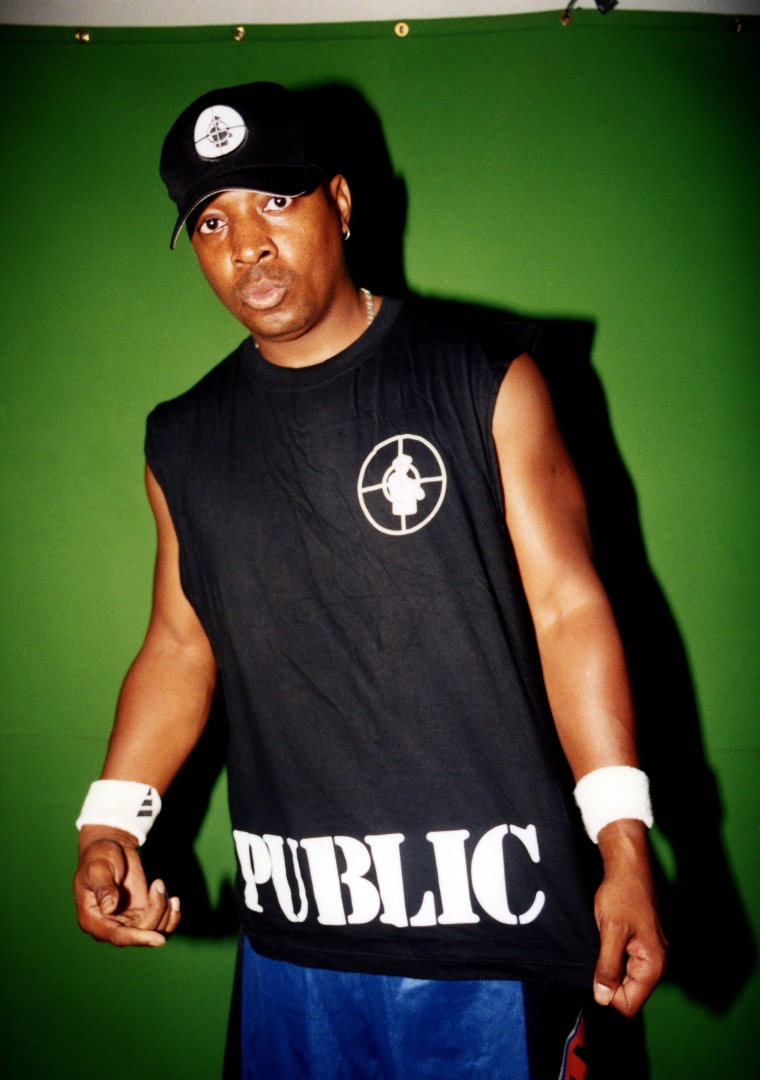
With 38 years in the business, Chuck D, 62, has experienced and seen more than most. In his recently released book, “STEWdio: The Naphic Grovel ARTrilogy of Chuck D,” he matches his graphic designs skills with piercing critiques on social issues in American life from 2020 to 2022 that he jotted down in his journal while on the road.
At the same time, he is the president and co-founder of the Hip Hop Alliance, an organization that fights for artists’ fair royalties, retirement savings and other rights to assure financial stability.
Countless artists have found themselves in financial straits because they signed ill-advised deals, had poor representation or mismanaged the money they did earn. The Hip Hop Alliance is a labor force organization with lawyers and industry veterans that fights to protect artists from being taken advantage of by opportunistic record labels.
“This is artists protecting artists,” Chuck D said.
In a wide-ranging conversation with NBC News, Chuck D raps and reflects on the power and influence of hip-hop artists, the origin of the genre, why Public Enemy took on social issues, the importance of creating an artists union and the future of the genre with artificial intelligence, among other issues.
NBC News: What do you remember about 50 years ago, when hip-hop went from this New York- based phenomenon of the streets to records in mainstream America?
Chuck D: I heard rumors all throughout 1979 that there was going to be a rap record. And I was like, “How in the hell? No way.’ It was inconceivable that it would be such a thing because, to me, rap was something that took place over a two- or three-hour period. So, I’m thinking, ‘How are you gonna put rap down a record?’ And when the Sugar Hill Gang came out with Rapper’s Delight, I was like, ‘Oh, that’s how? Wow.’
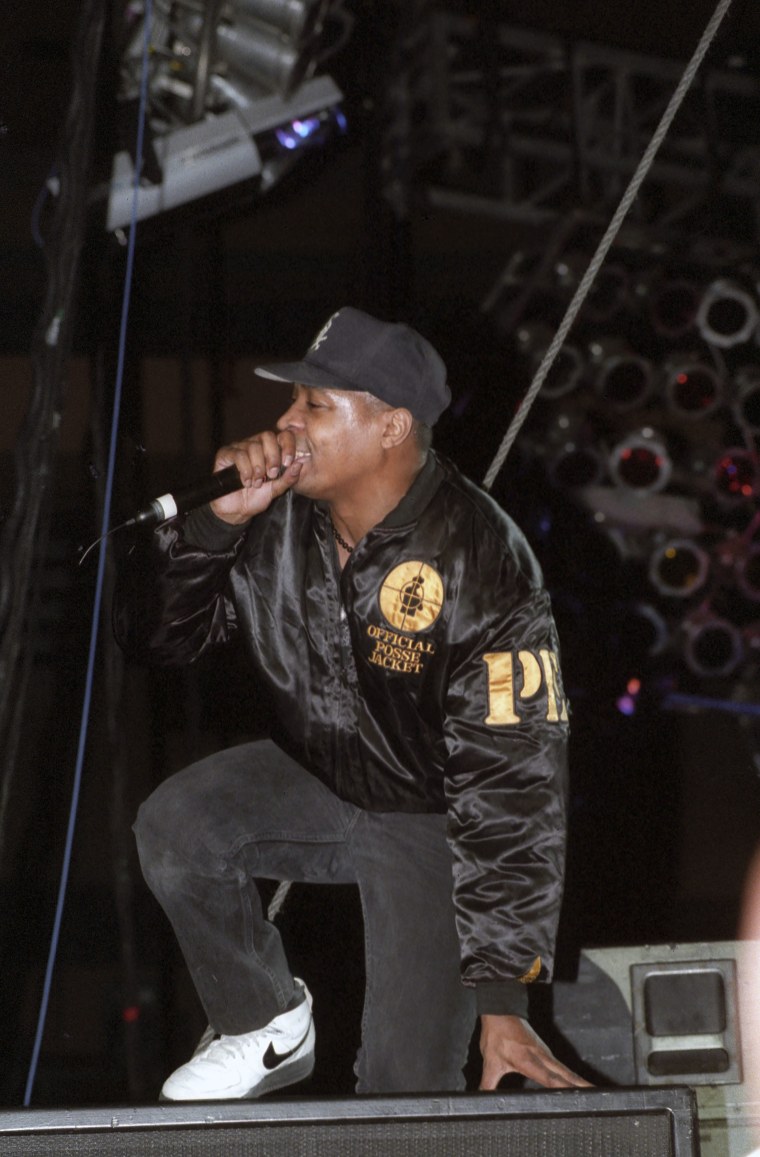
NBC News: What is it about hip-hop that has made it such a global sensation?
Chuck D: When I was in the 11th grade, I was just blown away by the technology of it all. Why does a guy need two turntables? Is one for backup in case the other one breaks down? (Laughs.) I didn’t understand. But I later learned, and it was so cool, so creative.
Hip-hop happened to be the term that came around 1973. It was so technologically futuristic. And that intrigued me — and everyone. The next stage was when it became recorded music. Everyone could hear what we lived and loved. And the third stage was Run DMC’s “Raising Hell” album that came out in 1986. This was something that went head-to-head with anything that rock music produced, and they played the same arenas, had the same volume and audacity. They were kicking the noise.
NBC News: And that set the stage for all that came after?
Chuck D: Yes, because rap is applicable to rock, country, folk, reggae, which comes up out of soul. And with it came the style, a lifestyle, the messages, the impact that penetrated all walks of life. A culture.
NBC News: The formation of Public Enemy seemed to be about pushing a narrative of Blackness as much as the music. Why?
Chuck D: It behooves you to study what you love. We love Black music and we studied it. It was like we were historians. We really relished the music. We made “Fight The Power,” but the Isley Brothers had made it first, in 1975, and it was very influential to me. So, by the time we made it for the Spike Lee soundtrack to “Do the Right Thing,” we were making a statement of what we saw, what we listened to, what we absorbed as a community.
We were at a certain age, but we weren’t trying to appeal to kids. We were doing what grown folks do. We weren’t going to bow and appeal to the kid dollar in order for us to make a living. When we made our music we felt like that was the way it should be. I learned from my dad: You say your thing and you stand by it. And that resonated despite the marketing teams wanting to cower to the kid dollar.
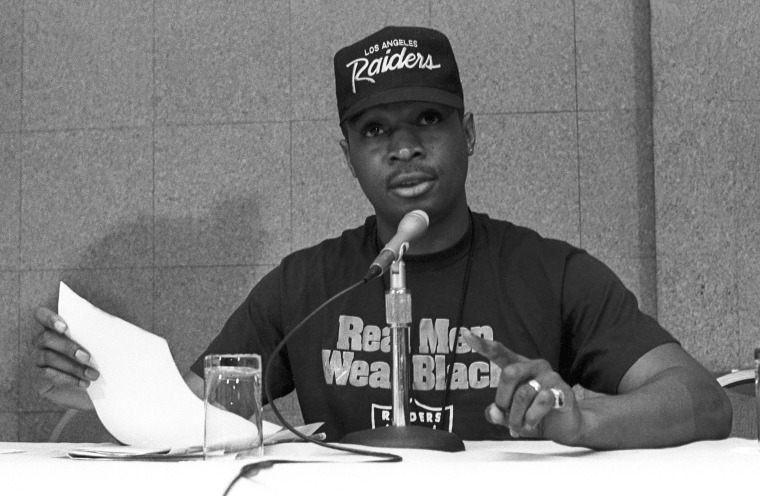
NBC News: Hip-hop started off with warm, fun stories. Then you guys and KRS One and others added the strong Black awareness elements. And for a while now there’s a lot of boasting, a lot of violence projected, sex, misogyny. Can you talk about the changes in the evolution of the messages that are being recorded?
Chuck D: The business initiatives for the last quarter century have been that you could come in and say anything about Black people and get rich off it with no kind of repercussions. With Public Enemy, we just tried to shake the tree that’s leaning already against us. So, for artists today to actually go and help push the tree down on yourself is stupid — but there’s somebody making a dollar off of it.
But here’s the thing: There are lawyers in the background negotiating these deals with these lyrics that throw Black people under the bus. But would a lawyer be on the side of the music that was derogatory about people who suffered in Auschwitz? They’d say, ‘Due to my ethics, I can’t be involved with that.’ But they don’t do the same thing when it comes to Black people.
NBC News: Through hip-hop, many artists have expanded their professional horizons into films, TV and other business opportunities. Does that speak to the power of the genre?
Chuck D: It does, but it’s also bittersweet because when these artists are doing their thing as artists, they are being less than what they should be — unprofessional, showing up late for sets, etc. But then they go into these other industries and they leave the ghetto stuff behind. They do that at a movie and they’ll be replaced, and they know that. So, if you can be right and professional in these new areas, be that way with rap and hip-hop. Don’t treat it like a step ladder to other opportunities. Treat us like you do all the other industries.
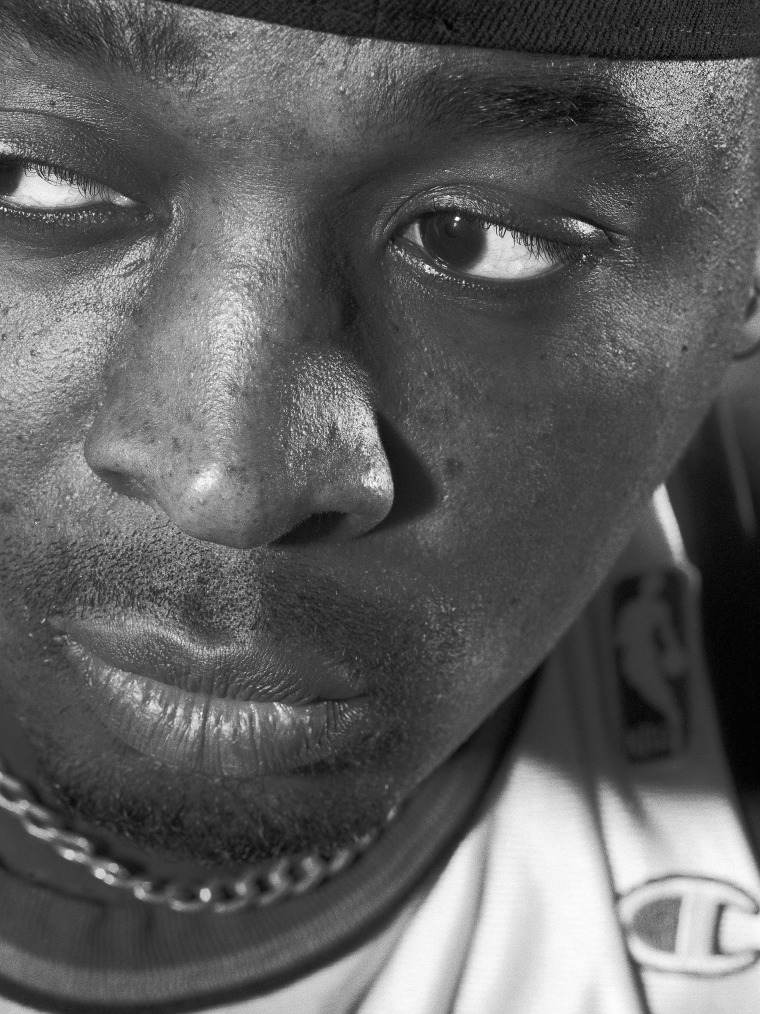
NBC News: You and two other legendary rap artists along with you — Kurtis Blow and KRS-One — founded the Hip Hop Alliance, which is educating and financially protecting artists. What inspired this?
Chuck D: The fact is that people want to figure out how to get the fruits of the industry with their work. It takes a team to make you understand what you’re into. That’s where the Hip Hop Alliance comes in. It’s that collection of people in the legal area, accountants, people to give clarification to the complicated. Unsung and Beyond the Music only touches on the issues of artists going broke. It’s deeper than that. And we have experts in place to educate and protect artists. Every other industry has a union to protect and advocate for its workers. That’s what the Hop Hop Alliance is.
NBC News: Looking at the future of hip-hop, artificial intelligence is here and seems to be a threat to many industries, including music. How do you see it impacting the industry?
Chuck D: Artificial intelligence is not going to get dumber. If I put in components, it’s going to create a song that would be around 85% right. That’s a lot. So, musically and culturally, we have to learn how to dance with it. But I have always said this about Auto Tune artists: You have to be able to keep your voice because if you’re trying to sound like auto tunes, people will eventually praise the machine.
Artificial intelligence is trying to be perfect, which means it goes against human imperfections, which is how we learn and correct and create our style. Perfection is boring. The fact that I draw a line and decide to go left at the last minute instead of right is me going into expressionism and saying that’s my human interpretation of where I want to take that line. For all it can do, AI can’t do that. And that’s our advantage.
